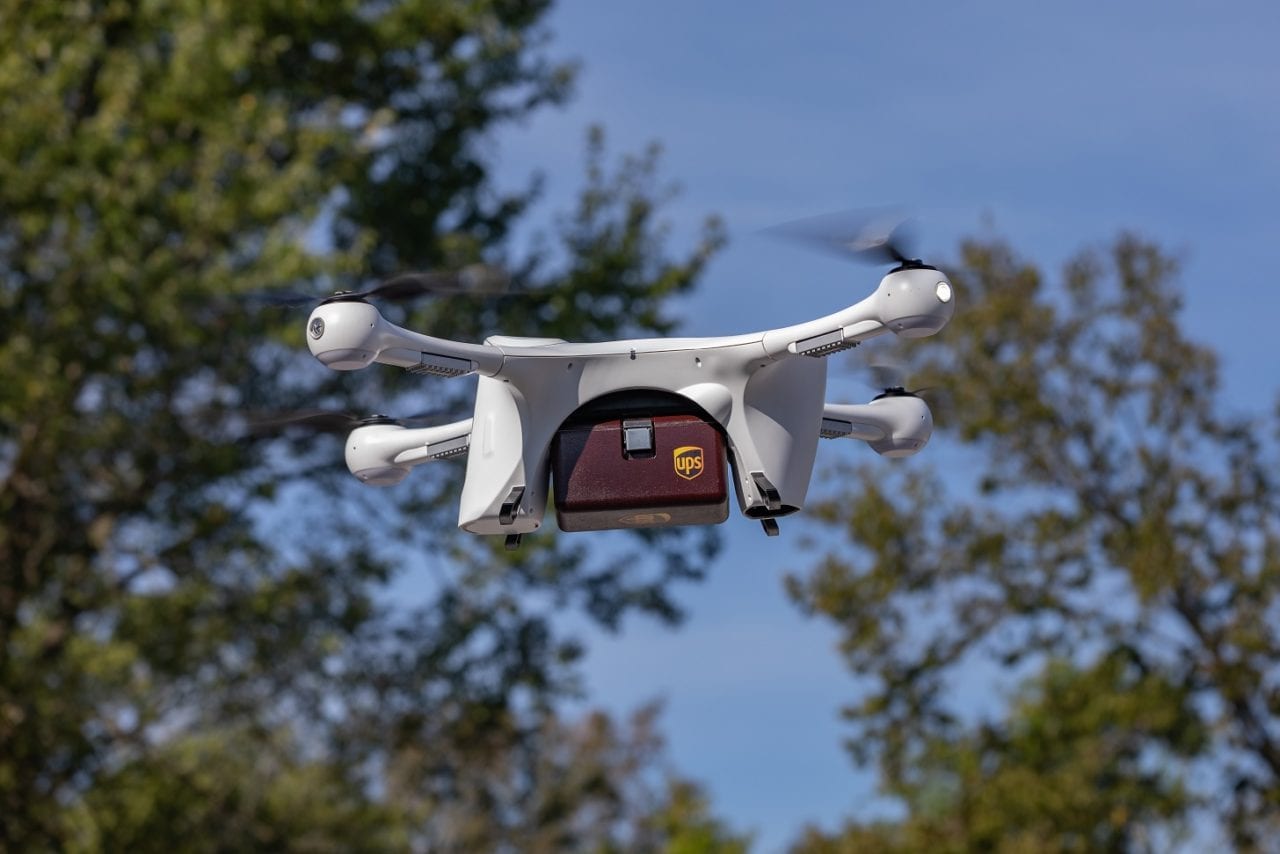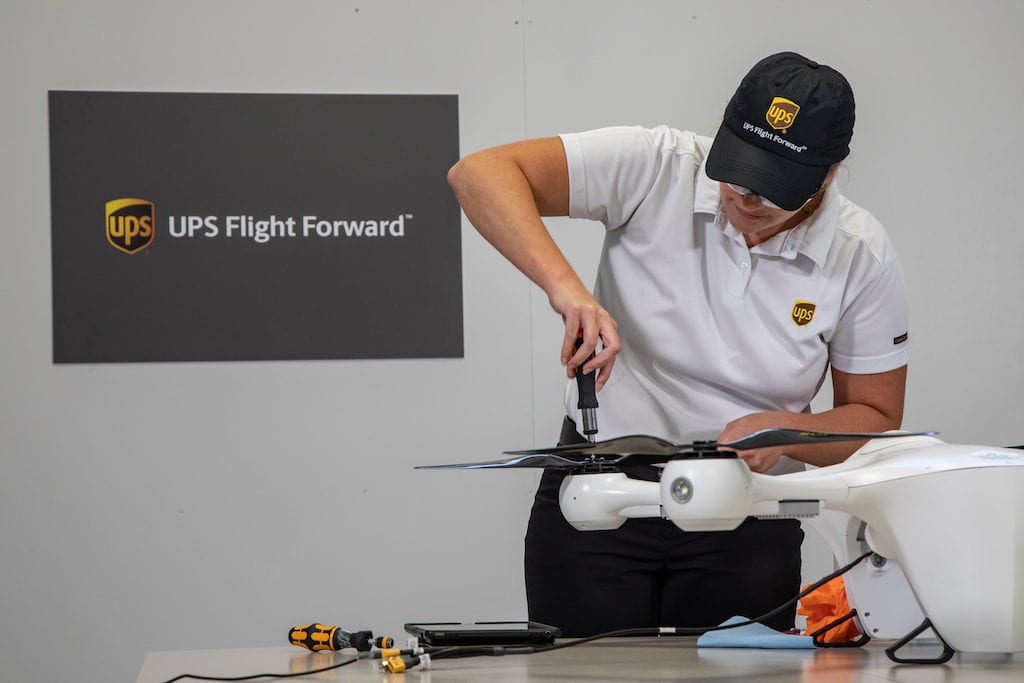
A UPS-operated drone in flight, carrying a delivery package. (UPS Flight Forward)
UPS subsidiary UPS Flight Forward has attained the first Part 135 Standard certification from the FAA to operate a drone airline, which it intends to use to scale its medical drone delivery service to hospital campuses across the country. UPS also conducted the first regular, revenue-generating drone delivery flight immediately after receiving the certification.
Previous Part 135 approvals granted by the FAA to companies such as Alphabet’s Wing were limited by location and by number of concurrent drones or remote pilots in operation. UPS’ certification has no such limitations on drones or pilots and does not require FAA approvals for geographic expansion unless it involves a new use case or aircraft type, according to the company.
“Our technology is opening doors for UPS and solving problems in unique ways for our customers,” said David Abney CEO of UPS. “We will soon announce other steps to build out our infrastructure, expand services for healthcare customers and put drones to new uses in the future.”

UPS Flight Forward is positioned to be the one of the first fully-certified U.S. drone operations. Photo: UPS Flight Forward
UPS’ pilot operations, based in Raleigh, North Carolina and partnering with WakeMed’s hospital campus as part of the FAA’s nationwide commercial UAS Integration Pilot Program, have employed drones made by Silicon Valley startup Matternet, which the company called “an excellent partner for us in the healthcare space.” UPS is open to using different drones for other use cases or partnering with other drone manufacturers to build platforms ideal for its applications, the company said.
The certification permits UPS to fly drones and cargo exceeding 55 pounds and to fly at night, removing previous restrictions, however approvals to fly over people and beyond the operator’s visual line of sight (BVLOS) are yet to be achieved.
UPS plans to fly “regular and frequent drone flights” BVLOS, using a rapid build-out of ground-based detect-and-avoid (DAA) technologies combined with air traffic management systems to ensure safe operations, with a centralized operations control center. UPS declined to share further information on partner companies, specific technologies or the use of ground-based versus onboard DAA systems.
“We are actively reviewing and will be announcing our selection for drone air traffic control technology and other infrastructure to operate this service,” a representative for UPS told Avionics International via email.
For now, UPS will continue to fly its drones on the WakeMed campus “on an hourly basis during normal business hours M-F,” an FAA representative confirmed to Avionics, using a visual observer in communication with the remote pilot — though now these flights will generate revenue for the company. The FAA wouldn’t comment on UPS’ potential path toward achieving BVLOS operations without visual observers, beyond saying it will assess data from manufacturers and/or operators of DAA technology to determine approvals.
 |
Don’t miss a beat on drone delivery and eVTOL aircraft development. Sign up for our brand new e-letter, “The Skyport,” sent to inboxes every other Thursday with all the latest news, analysis and insider scoops. |
UPS also plans to expand outside of healthcare services and hospital campuses, targeting industries based on existing infrastructure and demands for speed.
“We’re looking at a variety of industries in addition to healthcare and life sciences where we can add value and provide distinct benefits and competitive advantages to customers,” the UPS representative said.
U.S. Secretary of Transportation Elaine Chao called this approval a “big step forward in safely integrating unmanned aircraft systems into our airspace,” building on the success of the FAA’s UAS IPP. It may pave the way for other companies such as Amazon, Wing, Flytrex and Flirtey to receive regulatory approval for large-scale drone delivery operations.